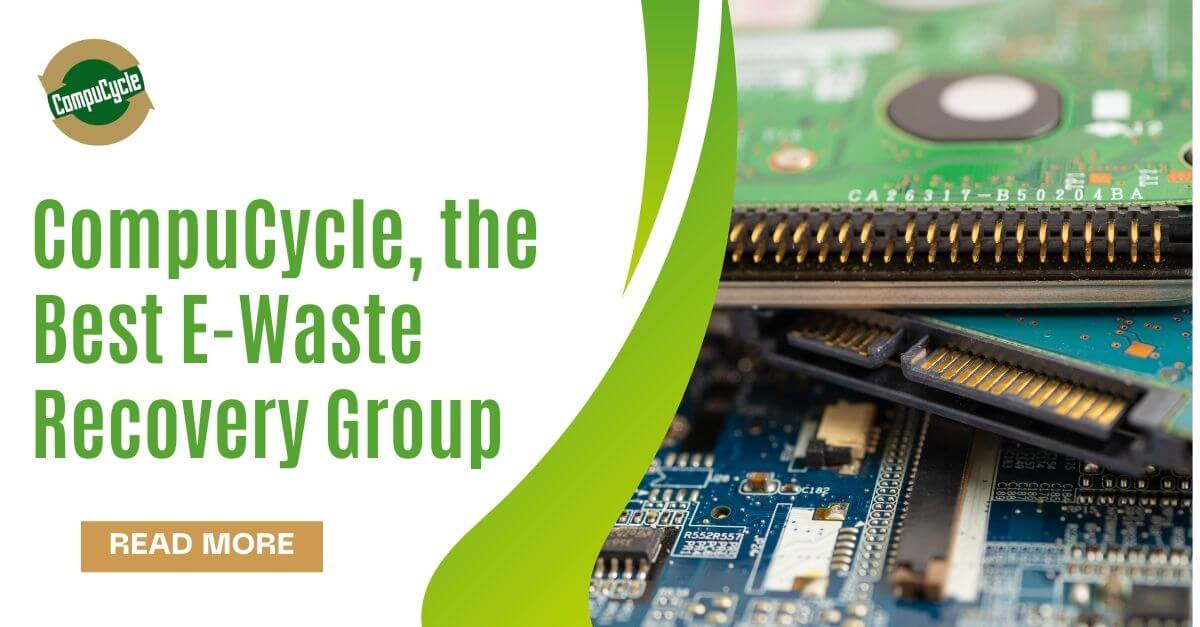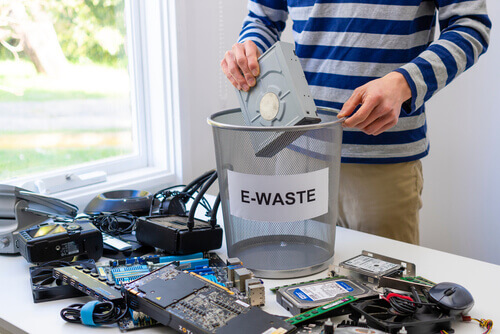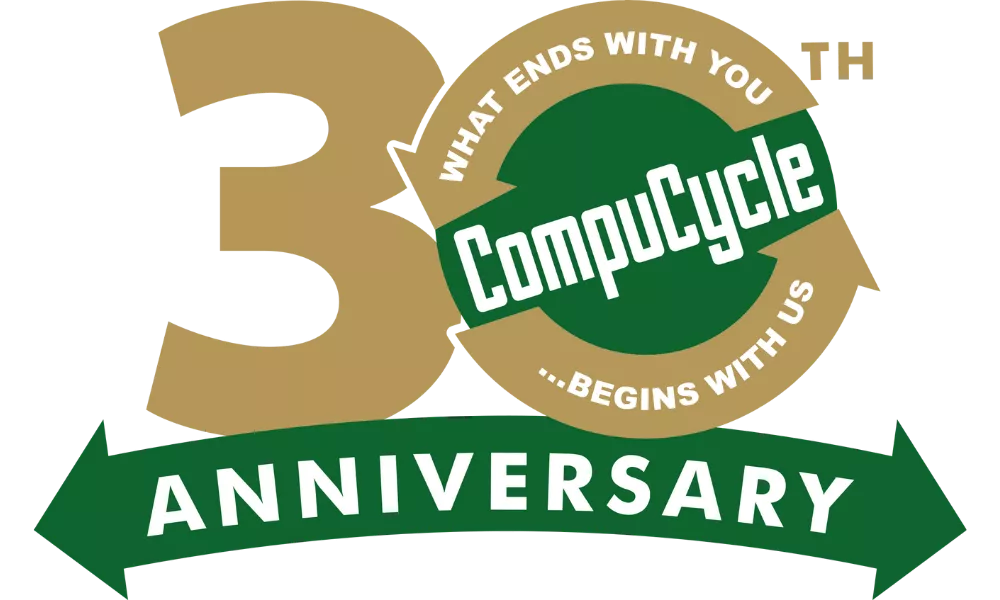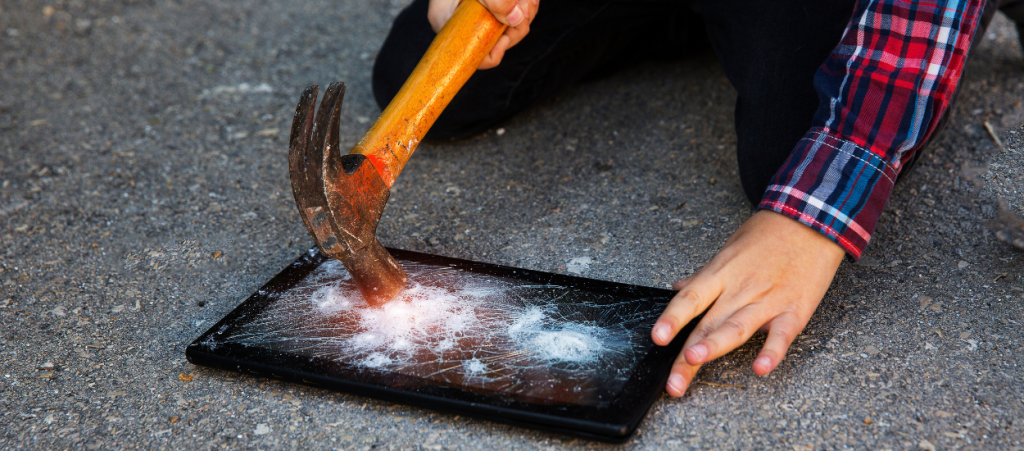
The process of recycling electronics involves several extensive and complex steps, each of which is crucial not only for the security of confidential and sensitive information and data but for value recovery as well. E-waste recovery is a component of e-recycling that is often overlooked while choosing an ITAD and electronics recycling partner. To make sure proper electronic waste recovery, businesses of all sizes and industries need to perform due diligence before opting for an e-waste recovery group.
Benefits of Enhanced E-Waste Recovery
The two major targets of every business are increasing its revenues and reducing its costs. The former can be achieved in a number of ways, including boosting productivity, operational efficiency and creating additional sources of income. Businesses use an enormous number of electronics and IT assets that play a crucial role in allowing them to operate effectively. When these devices and equipment reach the end of their lives, they become unable to offer any value to the business…or that is what is commonly believed.
Recycling redundant electronics and IT devices allow organizations to recover value from them even after they stop functioning. This is done in two ways: refurbishing and remarketing the devices and on-site shredding them to extract and reuse the materials they hold. An e-waste recovery center has the tools and specialization to perform precious metal recovery from e-waste. Recovery of e-waste not only provides monetary benefits to the business that generated the e-waste but is helpful to the environment as well.
Metal recovery from e-waste contributes to global natural resource preservation as the metals are reused for the manufacturing of various products. This means that the demand for metal extraction gets diminished, and the natural ecosystem is impacted less. For a business, this serves as an added stream of revenue, benefiting its bottom line and helping it to cover its IT asset procurement costs in a substantial manner.
How to Improve Electronic Waste Recovery 
Businesses can improve their e-waste recovery by handing over their redundant and end-of-life electronics to a certified and specialized e-waste recovery center, like CompuCycle. The e-waste recovery group you opt for needs to have efficient and technologically advanced e-waste recovery systems in place and should have an extensive network of ready buyers within the refurbished electronics market.
CompuCycle tests, refurbishes, and resells end-of-life electronics and conducts e-waste metal recovery in compliance with international as well as local regulations and standards. It has a big pool of buyers of refurbished tech and media devices that allows the company to redirect an immense value towards your business against the e-waste it produces. You may find an e-waste recovery group that claims to be extremely affordable, but its poor electronic waste recovery can cost your business big time in terms of lost potential returns.
CompuCycle’s team of industry experts and professionals efficiently and extensively maximize the value recovery from your e-waste, improving your ROI. Not all e-waste recovery systems are created equal, and you do not want to wind up with one that does not extract every bit of the value your e-waste has to offer.
Why CompuCycle is The Best E-Waste Recovery Group
There are a number of factors that help determine the ability of an e-waste recovery center to efficiently recover value out of redundant and end-of-life electronics and IT devices. These factors include the proficiency of its teams, the equipment it uses, the e-waste recovery systems and processes it employs, the level of its compliance with global e-waste value recovery standards, and the techniques and methodologies it uses.
CompuCycle is R2 certified and compliant with all the e-recycling and electronic waste recovery standards out there. It thoroughly assesses each electronic device it receives using several different methodologies to separate the reusable ones from the rest. Responsible Recycling (R2) regulations clearly outline the features of the electronics that are to be considered reusable.
The equipment that can be reused is sent for refurbishing, while the devices that are not fit for reuse are sent to be put in CompuCycle’s state-of-the-art and highly advanced and modern shredder. The shredder shreds the devices into minuscule pieces that are then sorted out to separate valuable material from scrap. Materials like copper, aluminum, silver, gold, etc., are picked out and sent to be reused in the production of other products.
The functionality and condition of the refurbished devices are checked and tested again before they are listed for resale. The value received from the sales is directed to the business that originally produced the e-scrap.
Every process across the e-waste recovery chain of operations in CompuCycle follows the best practices of the industry. To ensure proper and maximum electronic waste recovery, get in touch with CompuCycle today.
Recent Articles
CompuCycle Becomes Exclusive Woman-Owned E-Waste Processor in Texas with ISO 27001 Data Security Certification
New Information Security Management System (ISMS) Certification Guarantees End-to-End Data Confidentiality and Integrity for Corporate IT Asset Disposition (ITAD). HOUSTON, TX – December 9, 2025 – CompuCycle, an industry leader in secure and sustainable IT…
Read MoreSecure Electronics Disposal in Houston: Why the City’s Largest Industries Trust CompuCycle
When a major healthcare system decommissions thousands of laptops, or an oil and gas company retires an entire data center, one question comes up again and again: What happens to all that data — and…
Read MoreCompuCycle Executives Join R2 TAC and e-Stewards Leadership Council to Advance ITAD Standards
Houston-based ITAD provider deepens its industry influence through active participation in standard-setting committees. As corporate ITAD needs evolve alongside stricter compliance and ESG requirements, CompuCycle continues to lead the way—this time by contributing directly to…
Read MoreI’m Just a Computer: A Journey Through ITAD Recycling
Meet Chip the Computer – he’s about to take you on an unforgettable journey through the world of IT Asset Disposition (ITAD). Buckle up for an adventure that’s both educational and entertaining! Chapter 1: “Hello,…
Read MoreI’m Just a Computer: A Journey Through ITAD Recycling
Is There a Wrong Way to Recycle Electronics?
CompuCycle In The News – Earth Month 2025
- « Previous
- 1
- 2
- 3
- Next »



